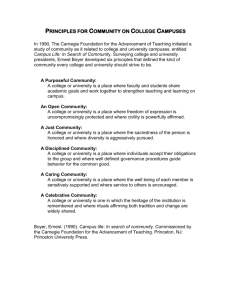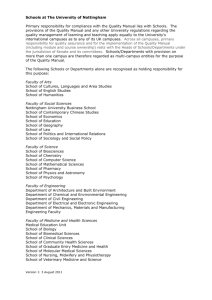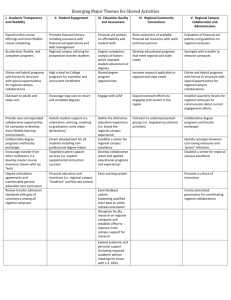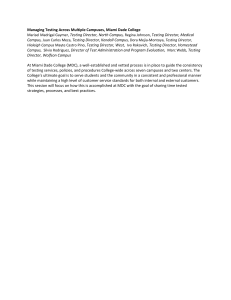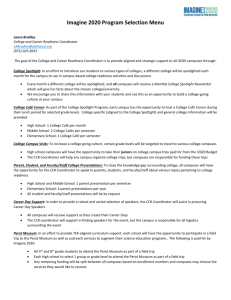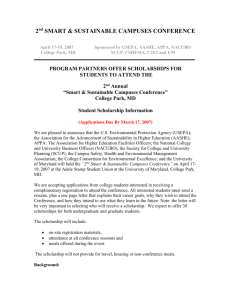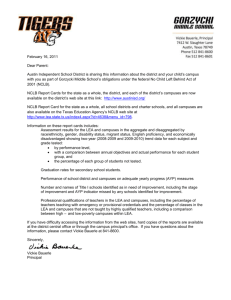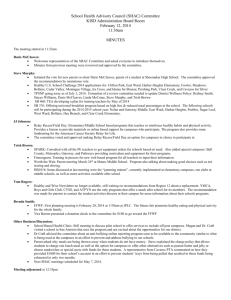Blueprint - Indiana University Northwest
advertisement
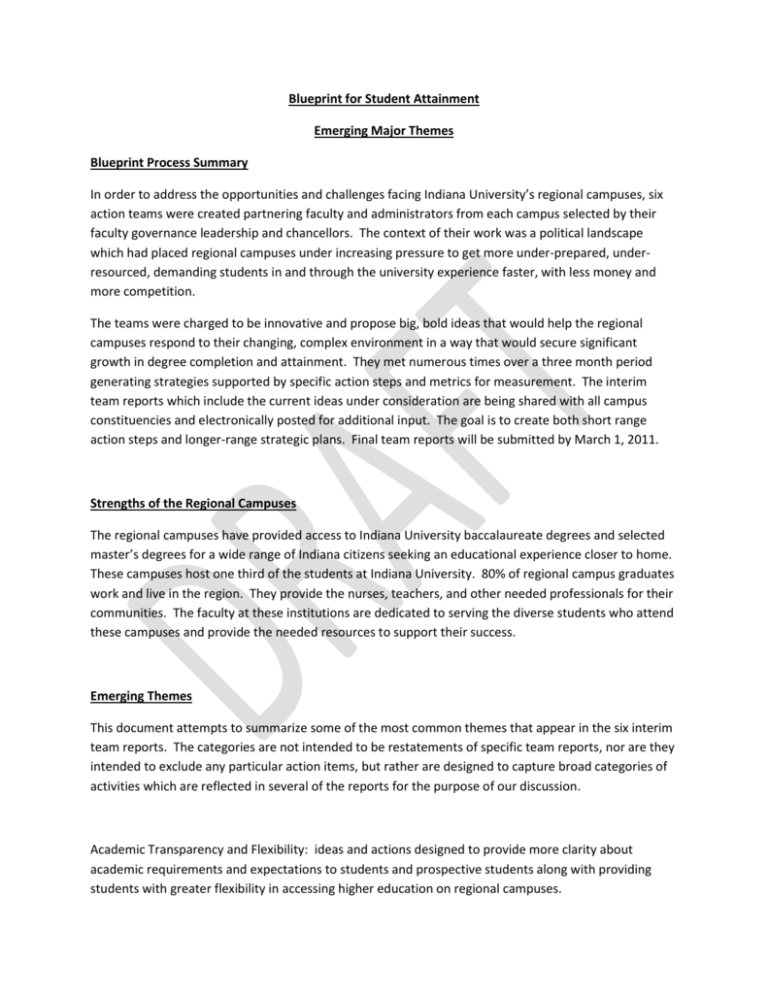
Blueprint for Student Attainment Emerging Major Themes Blueprint Process Summary In order to address the opportunities and challenges facing Indiana University’s regional campuses, six action teams were created partnering faculty and administrators from each campus selected by their faculty governance leadership and chancellors. The context of their work was a political landscape which had placed regional campuses under increasing pressure to get more under-prepared, underresourced, demanding students in and through the university experience faster, with less money and more competition. The teams were charged to be innovative and propose big, bold ideas that would help the regional campuses respond to their changing, complex environment in a way that would secure significant growth in degree completion and attainment. They met numerous times over a three month period generating strategies supported by specific action steps and metrics for measurement. The interim team reports which include the current ideas under consideration are being shared with all campus constituencies and electronically posted for additional input. The goal is to create both short range action steps and longer-range strategic plans. Final team reports will be submitted by March 1, 2011. Strengths of the Regional Campuses The regional campuses have provided access to Indiana University baccalaureate degrees and selected master’s degrees for a wide range of Indiana citizens seeking an educational experience closer to home. These campuses host one third of the students at Indiana University. 80% of regional campus graduates work and live in the region. They provide the nurses, teachers, and other needed professionals for their communities. The faculty at these institutions are dedicated to serving the diverse students who attend these campuses and provide the needed resources to support their success. Emerging Themes This document attempts to summarize some of the most common themes that appear in the six interim team reports. The categories are not intended to be restatements of specific team reports, nor are they intended to exclude any particular action items, but rather are designed to capture broad categories of activities which are reflected in several of the reports for the purpose of our discussion. Academic Transparency and Flexibility: ideas and actions designed to provide more clarity about academic requirements and expectations to students and prospective students along with providing students with greater flexibility in accessing higher education on regional campuses. degree program roadmaps clarification of transfer requirements accelerated completer programs academic calendar changes (i.e. three semester structure) flexible course scheduling (early morning, weekends) adoption of LEAP dual credit programs specific to regional campuses Student Engagement: ideas and actions designed to more closely connect the student to their chosen fields of study, personal goals and financial opportunities/risks while at the same time providing them with on-going evaluation and support. more holistic approach to student services early major declaration career development advising and opportunities for all students targeted student support (i.e. supplemental instruction) early warning and feedback systems active outreach to adults and stop outs financial literacy programs and increased aid assistance change tuition and fee structures Educational Quality and Assessment: ideas and actions designed to enhance the quality of education offered on each regional campus, increase external understanding of the role/mission of the campuses, and provide new opportunities for faculty. define and brand the regional campus experience expand qualified tutor base develop active and applied educational program experiences (undergraduate research, international programs, internships, service learning) recognize multiple ways that regional faculty research endeavors contribute to regional development review transfer admission standards with goal of consistency among regional campuses shared degree program opportunities between and among regional campuses Regional Community Connections: ideas and actions designed to increase community support for the campuses and its students and faculty by developing closer working relationships between the campus and the community in multiple areas of shared interests. outreach to underrepresented groups with specific targeted recruitment raise financial aid needs awareness among local business and community partners engage more with local alumni recognize and increase faculty research on regional campuses focused on the scholarship of discovery and creativity, teaching and engagement develop system to identify changes in local needs and initiate appropriate programs to address Regional Campus Collaborations and Administration: ideas and actions designed to forge closer and more permanent relationships among regional campuses with the goals of maximizing their combined strengths into a world-class educational network and of recognizing the vital role that they play in the Indiana system of public higher education. establish center for regional campus excellence consider ways to continue the blueprint collaborative environment establish office to improve multi-campus support for research develop mechanism for collaborative efforts related to online and hybrid programs increase coordination with professional schools on research campuses explore concept of more formalized regional campus structure to recognize their collective “one-third” share of IU, including regional campus faculty governance concept quarterly forums on regional campus engagement efforts
